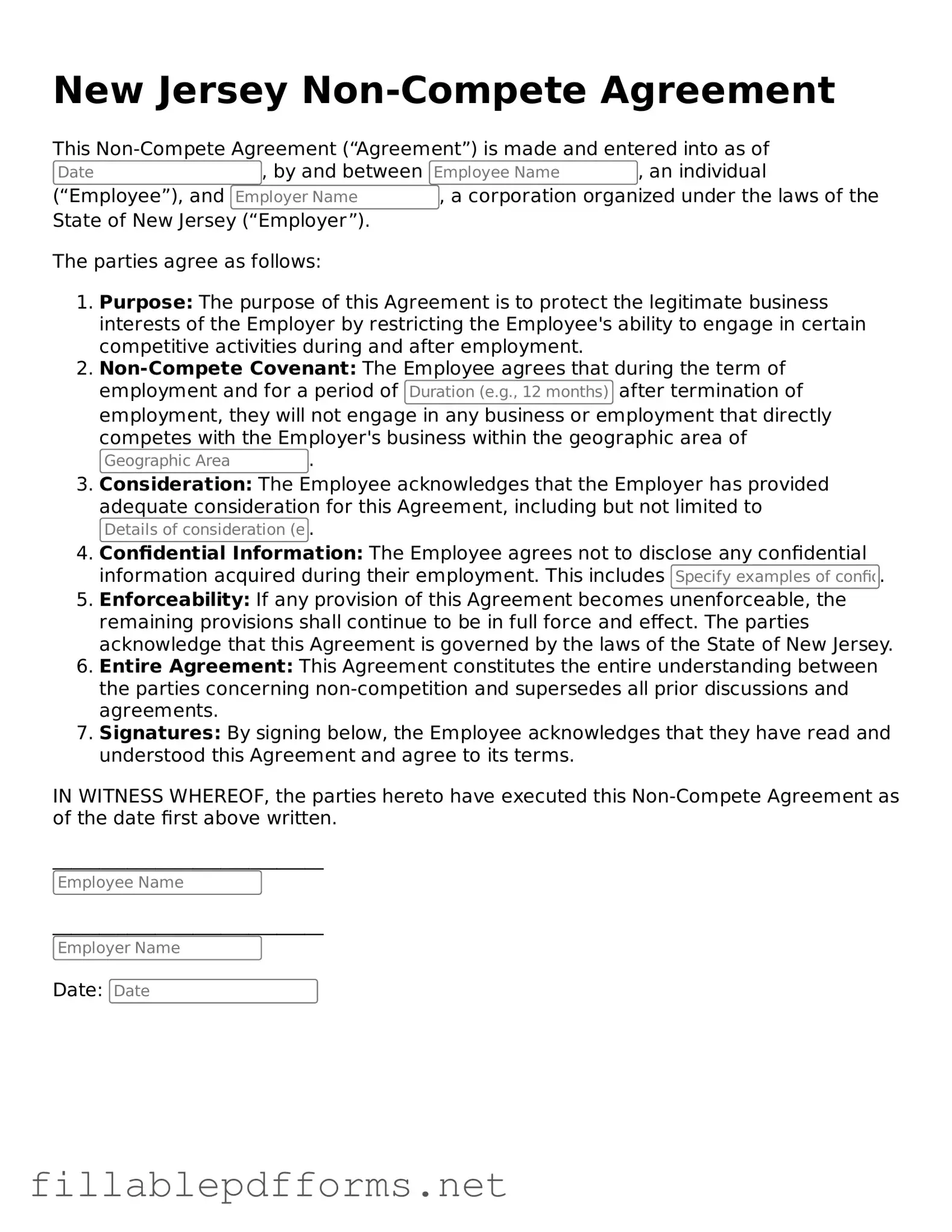Attorney-Verified Non-compete Agreement Form for New Jersey State
A New Jersey Non-compete Agreement is a legal document designed to restrict an employee's ability to work for competitors or start a competing business after leaving their current employer. This agreement aims to protect the employer's business interests by preventing the sharing of confidential information and trade secrets. Understanding the nuances of this form is essential for both employers and employees in New Jersey.
Launch Editor Here

Attorney-Verified Non-compete Agreement Form for New Jersey State
Launch Editor Here

Launch Editor Here
or
▼ Non-compete Agreement PDF
Almost there — finish the form
Complete Non-compete Agreement online fast — no printing, no scanning.